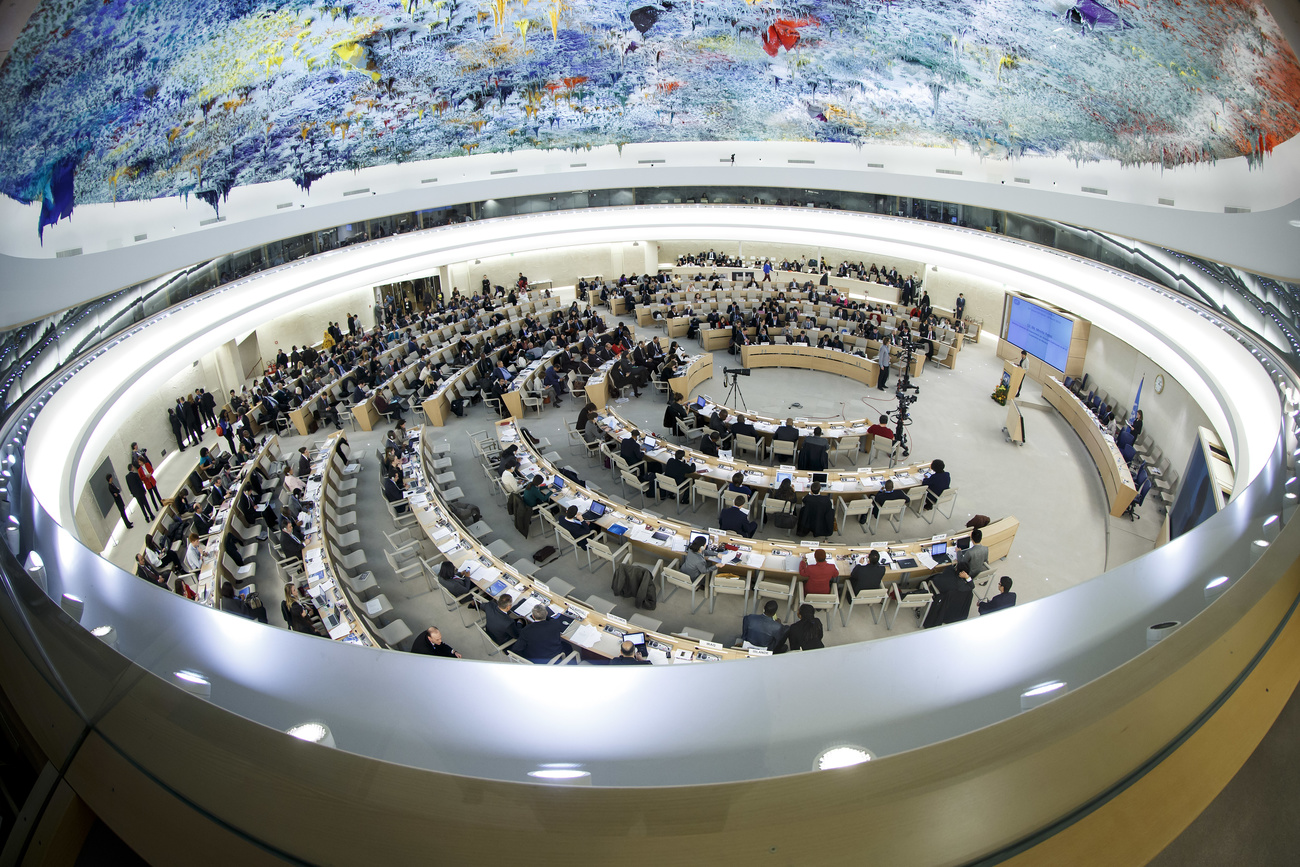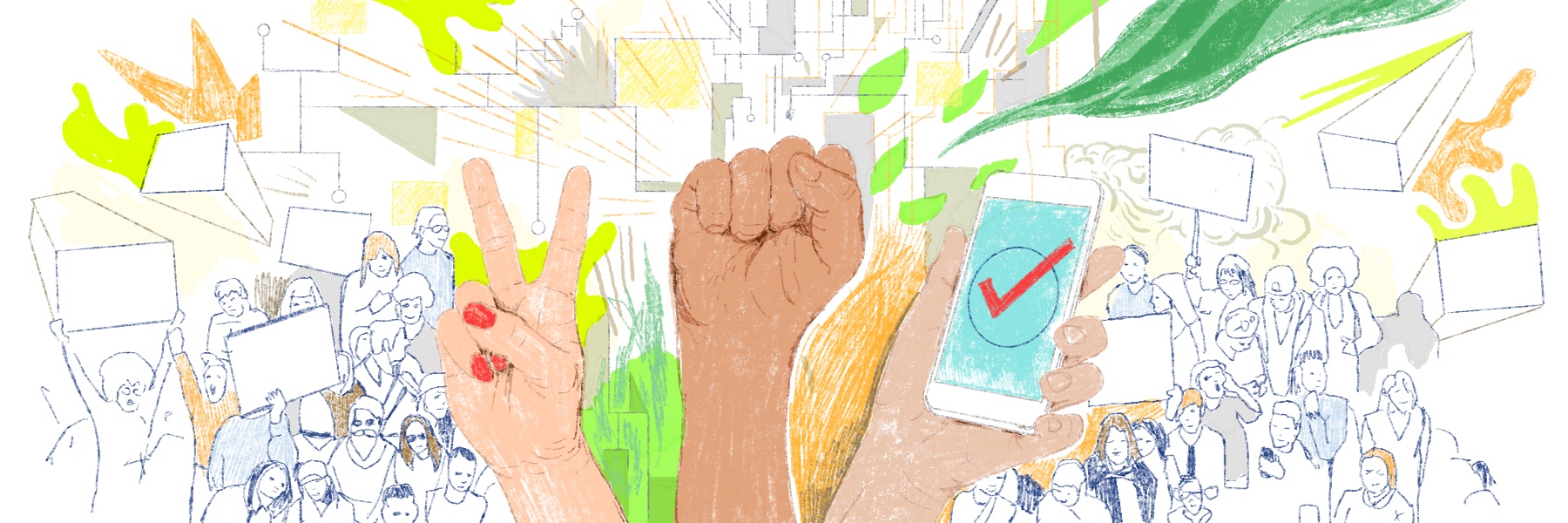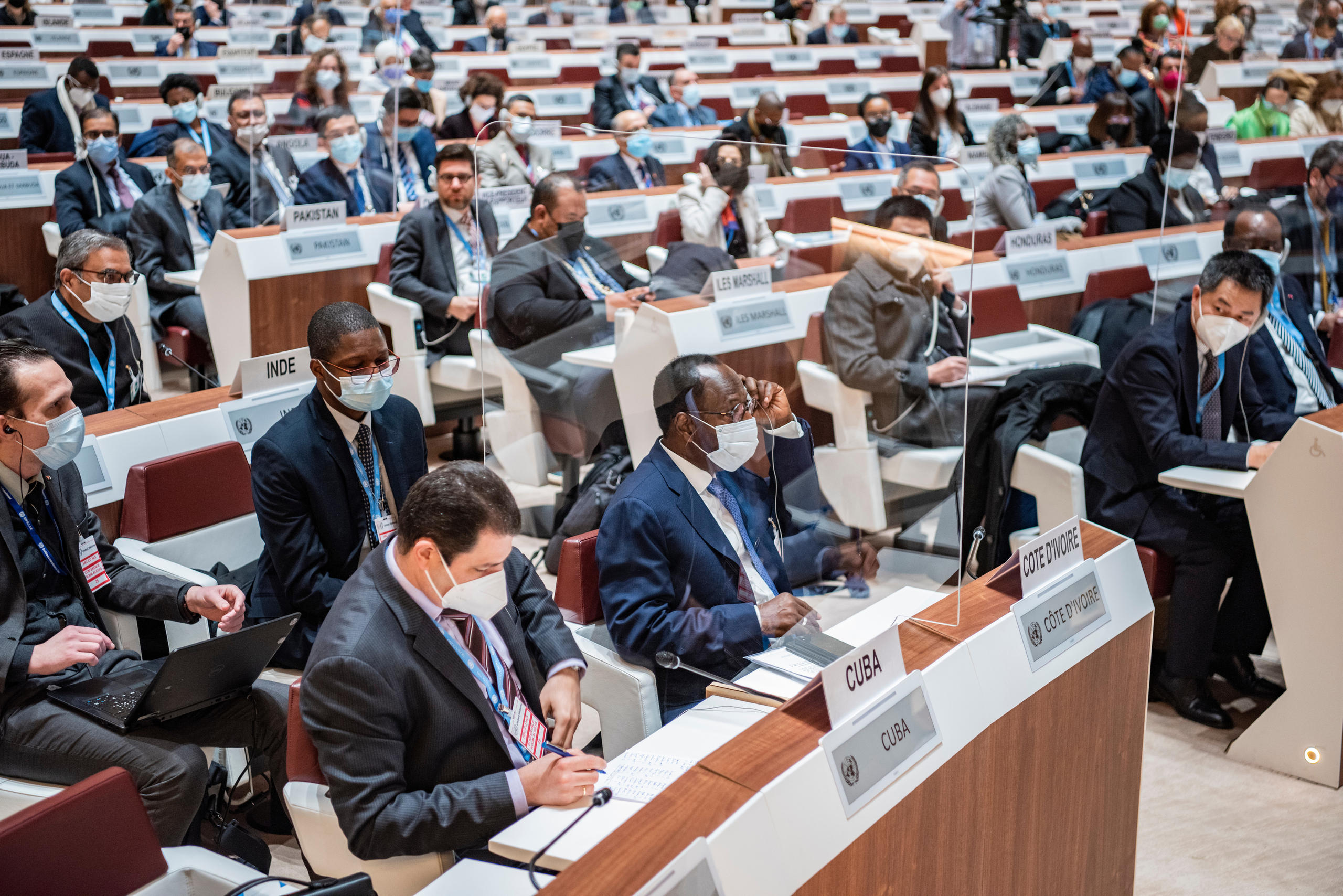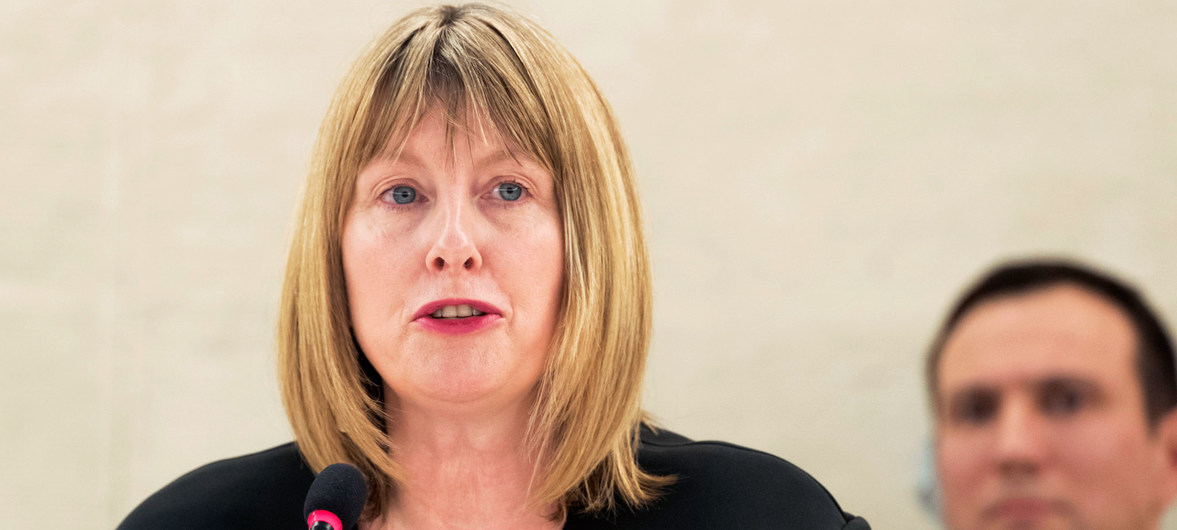Swiss press freedom under scrutiny at the United Nations

The United Nations Human Rights Council is pointing its finger at Swiss media law. Current legislation protects the banking sector from whistleblowers in the banking sector.
Long emphasising the importance of freedom of expression during international gatherings, Switzerland is having to react to criticism by the United Nations special rapporteur on freedom of expression, Irene Khan.
In a reportExternal link to be presented to the council on June 24 she takes aim at a Swiss law which criminalises journalists who publish information from whistleblowers in the banking sector.

More
Swiss banking secrecy law clashes with freedom of speech
The Human Rights Council is an inter-governmental body within the United Nations responsible for the promotion and protection of all human rights. It meets twice a year in Geneva. The ongoing session ends on July 8.
“The effect of the [Swiss] law seems to be to hamper investigative journalism, to stifle legitimate reporting on allegations of financial crimes and to chill Swiss media interest,” says the report, already available online.
In March, Khan sent a four-page letterExternal link to Swiss Foreign Minister Ignazio Cassis saying that while Swiss law generally allowed for exceptions to be made for publication of sensitive information when it is of public interest, the Federal Banking Law – which provides up to five years in prison or a fine of up to CHF250,000 ($260,000) in case of a violation – doesn’t include an exception for media articles or whistleblowers. She stressed the public interest of publishing information that related to human rights violations, environmental abuses, corruption and abuse of public office.
Legal chills
The flare-up of international interest in the law’s implications towards journalists began after it was revealed that Switzerland’s biggest media group, Tamedia, which includes newspapers such as Tages-Anzeiger, SonntagsZeitung and Tribune de Genève, refused to participate in a global media investigationExternal link based on leaked data from Credit Suisse. The report, known as Suisse Secrets, showed how the banking giant had maintained accounts with a number of corrupt individuals, criminals and people responsible for human rights abuses in their countries.
Account holders included a Yemeni security chief accused of torture, Venezuelan bureaucrats laundering public revenues amid the country’s descent into humanitarian crisis and an Italian accused of laundering funds for the mafia.
The probe, spearheaded by the German Süddeutsche Zeitung and the Organized Crime and Corruption Reporting Project, involved dozens of global news publications but not a single Swiss media outlet. The risk of expensive lawsuits and an increasingly tight financial environment has recently left Swiss news organisations with less of an appetite to take risks reporting.
Industry experts say the decision of 24heures, Tamedia’s most popular newspaper in canton Vaud, western Switzerland, not to participate in the Credit Suisse investigation was motivated by fear.
“It sends a bad signal towards the banks, which may feel empowered by the decision. It would have been interesting if 24heures had published,” says Etienne Coquoz, secretary general of Impressum, a Swiss journalists’ association.
Raphaël Mahaim, a Green Party parliamentarian, agrees. For him, the banking law “gives the impression that Switzerland seeks to protect its banks”, he told SWI swissinfo.ch.
The banking law, which dates back to 1934 and has been revised a number of times, enshrines Switzerland’s banking secrecy, already long ingrained in tradition and cantonal statutes.
As headquarters to many multinational companies and major banks long attracting wealth from around the world, Switzerland’s business sector has regularly come under the scope of journalists seeking greater transparency in supply chains and any links to shady individuals.
But in spite of attempts to penalise banking secrecy, including by former finance minister Eveline Widmer-Schlumpf, as well as the government’s signing of agreements with the United States and EU to disclose client information to their tax authorities, parliament has repeatedly rejectedExternal link such moves.
“It is very important that the work of investigative journalists reporting on wrongdoing – whether it’s state wrongdoing or private-sector wrongdoing – is not hampered in any way,” a spokesperson for the Office for the United Nations High Commissioner for Human Rights, said responding to a SWI swissinfo.ch question at a recent UN briefing about the Swiss legislation.

More
Human Rights Council: Fundamental or fundamentally flawed?
A follow-up email from the UN office pointed out that “freedom of expression is enshrined in article 16 of the Swiss Federal Constitution and in treaties, including the International Covenant on Civil and Political Rights (ICCPR) and the European Convention on Human Rights, to which Switzerland is a party.”
In 2022 Switzerland slipped four places to 14th in the global press freedom ranking by Reporters Without BordersExternal link.
To date, implementation of the Federal Banking Law towards journalists reporting on whistleblowing activity has not occurred.
Freedom or censorship in lawmakers’ hands
“Let’s tackle this issue one step at a time,” Jürg Lauber, Switzerland’s ambassador to the United Nations in Geneva told SWI swissinfo.ch ahead of the Human Rights Council’s 50th session. “Freedom of the press is a priority for Switzerland. If there is a point of weakness [in the law], we have to ask ourselves if we could improve it. I understand that the relevant legislative process has already started.”
During parliament’s March session, Mahaim presented an initiative to correct the Banking Law article criticised by the UN rapporteur and for it to be compliant with the fundamental right to press freedom.
Parliamentary discussions over the initiative are expected to “follow their course” within the chambers and to include deliberations in commission, before finding a compromise, he explained.
“It is not acceptable that Switzerland has an article that prevents journalists from doing their job”, Mahaim stressed.
Some journalists fear that the war in Ukraine, which began just days after Suisse Secrets was published, has drawn attention away from calls to change the legislation.
“The war came and there were other stories to deal with,” said Coquoz.

More
UN rapporteur calls out Switzerland for ‘criminalisation of journalism’
Parliamentary discussions over the Green Party’s initiatives are expected to be long, following a required administrative process. The law could take months, if not years to amend.
Right-wing parliamentarians have voiced concern over any change to the law. “To legislate in haste is to punish the entire Swiss financial centre for the actions of a single bank, given that I expect all banks to respect Swiss law,” recently said Olivier Feller, whose centre-right Radical-Liberal Party pushed for a hardening of the banking law in 2015.
Recent changes to media law show Switzerland will be able to tilt the balance towards companies even more easily.
A modification in May of the civil procedure code, which includes a provision allowing for expedited censorship of the media, represents yet additional challenges to Swiss journalists. The aim of the law is to protect individuals and companies from online accusations. But opponents see it as a means to weaken media financially. Article 266 of the code now allows a judge to ban the publication of an article if the content is deemed to cause harm to a person or company, a procedure known as SLAPPs (strategic lawsuits against public participation).
The mechanism is one that journalists are already familiar with.
François Pilet, co-founder of digital outlet Gotham City, which has been hit with heavy legal fees following its coverage of white-collar crime, feared there was little political will to stop such measures from being approved.
“I don’t understand the need today to create rules that make it even tougher for journalists to do their job,” he said. “Do we live in a country overwhelmed with fake news? No, I don’t think so. This will have consequences… and the only precaution for media to take may be to decide not to publish articles that may be too embarrassing” for certain individuals and businesses.
In response to the latest legal modification, Mahaim followed up with another initiative in parliament asking lawmakers to consider legislation on the lawsuits meant to censor or silence critics, similar to that of the European Union. A current EU proposal includes economic fines against parties that would employ the mechanism seeking to prevent an article to be published.
On June 10 Impressum requested the government and parliament reverse these trends by reinforcing press freedom.

More
A global stress test for freedom of expression

In compliance with the JTI standards
More: SWI swissinfo.ch certified by the Journalism Trust Initiative











You can find an overview of ongoing debates with our journalists here . Please join us!
If you want to start a conversation about a topic raised in this article or want to report factual errors, email us at english@swissinfo.ch.